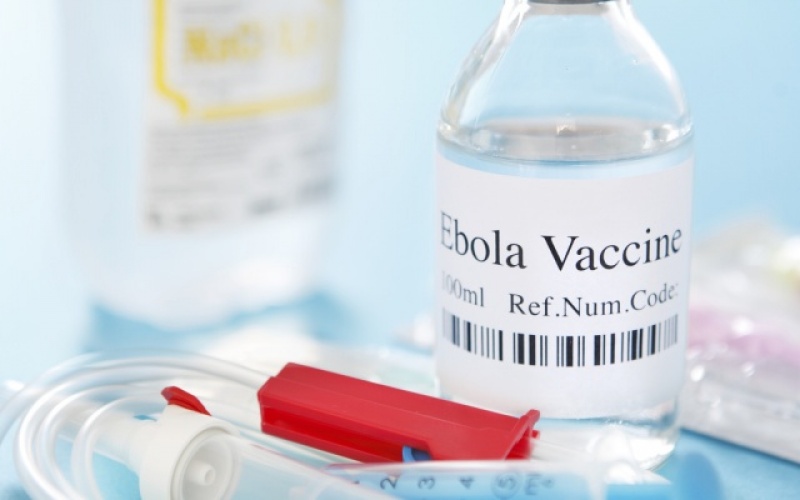
On August 9, the Republic of Guinea launched post-registration clinical trials of the Russian Ebola vaccine Gam Evac Combi.
The National Ethics Committee for Health Research of Guinea’s Ministry of Health and Public Hygiene (MOHPH) issued a permit to conduct clinical trials of the vaccine on 2,000 Guinean citizens in July 2016.
The Ebola epidemic in Western Africa primarily affected three countries: Guinea, Sierra Leone and Liberia. According to the WHO, the Ebola virus infected 28,600 people and killed over 11,300 of them.
Russian researchers were among the first in the world to respond to Guinea’s plea for help in combatting the Ebola outbreak. In response to the official request from the Guinean leadership, Russia sent a group of specialists and two lab modules of a mobile complex of specialised anti-epidemic teams by an aircraft of its Emergencies Ministry in August 2014.
UC RUSAL (Russian aluminium company) ensured the deployment of a field hospital for 200 patients donated by Russia and organised and funded the training of qualified military medical personnel for its operation. During the epidemic, the hospital rendered free medical aid to over 4,500 people. Today it is the main field medical unit of Guinea’s Armed Forces.
On January 14, 2016, Healthcare Minister Veronika Skvortsova announced that the Gamaleya Federal Research Centre for Epidemiology and Microbiology developed Gam Evac Combi, a combined vector vaccine against the Ebola fever. The vaccine was registered and permitted for use in medical practice on the territory of the Russian Federation in December 2015.
On February 15, 2016, Ms Skvortsova presented the Russian vaccine in Geneva to WHO Director-General Margaret Chan and other WHO officials. An extensive presentation was also held in the Palace of Nations, as well as at round table discussions in March and May 2016 in Moscow and Geneva.
The vaccine develops long-term immunity and has no serious side effects. It must be stored at -20C but now researchers are developing a vaccine that will work even at 4C. The Russian Ebola vaccine is the only duly registered medicine against Ebola at the national level.
Guinea chose to test the vaccine in the Centre for Epidemic and Microbiological Research and Treatment (CEMRT) in Kindia built by UC RUSAL to fight the Ebola epidemic in 2015. The Russian company invested over $10 million in its construction.
CEMRT represents a complex system of medical, diagnostic, logistics, guarding and dwelling buildings. Its main functions are to diagnose the presence of the Ebola virus, organise the treatment of infected patients, take part in anti-epidemic measures, conduct research related to the virus, search for treatment measures, train personnel and consult local medical workers.
The Kindia centre is designed for 40 beds but stores enough materials and equipment to double this number. It has its own diagnostic and clinical biochemical lab. In cooperation with the MOHPH, UC RUSAL held contests to select and train medical personnel for the centre. Following qualification exams, each of the centre’s medical workers received a certificate and a working permit from the Guinea’s National Ebola Coordination Committee and the WHO.
The centre has 90 employees: 45 medical workers (seven doctors, 15 paramedics and 23 medical nurses), 18 technicians and 27 security guards. The centre trained over 100 medical specialists that continue working in other anti-Ebola facilities in Guinea.
During the working visit of the Russian delegation (representatives from the Healthcare Ministry and the Gamaleya Centre) to Guinea last April, the sides signed a trilateral memorandum on cooperation between the Russian and Guinean healthcare ministries and Guinea’s Ministry of Higher Education and Scientific Research and addressed practical aspects of vaccination efforts in Guinea.
Last July, the Gamaleya Centre sent Russian equipment and over 1,000 vaccine doses to Guinea for initial vaccination. Guinea started mobilising its volunteers. Its Healthcare Minister issued an order to create the national committee to promote the Gam Evac Combi vaccination that included both Russian and Guinean researchers and experts that are organising studies and research at the local level and enlisting volunteers.
The trial programme includes the vaccination and health monitoring of volunteers, especially their development of immunity over the course of a year. Success of the programme will make it possible to use the Russian Ebola vaccine all over the world.
The vaccination of 2,000 Guinean volunteers and post-registration clinical trials in Guinea are expected to last until the end of 2018.
Source: Ghana/AccraFM.com

































